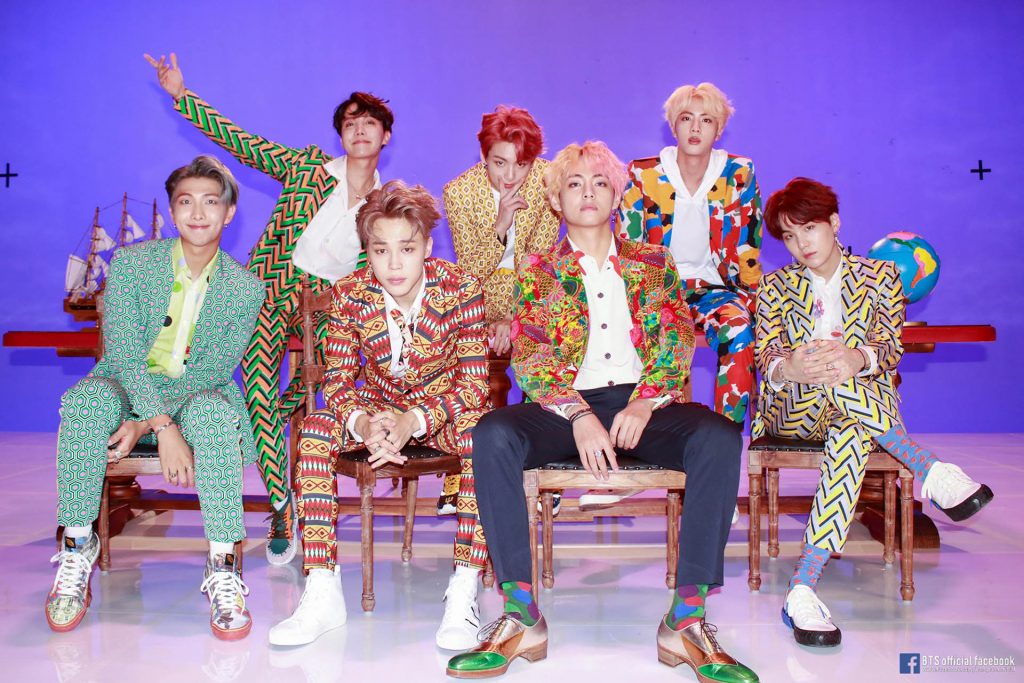Bang Si-hyuk is known among fans as the mastermind behind K-pop superstars BTS, but he is a veteran of the Korean music industry who has worked as a producer, executive, and entrepreneur. His accomplishments are continuing to grow at a global scale as CEO of Big Hit Entertainment: The company is expanding its reach into eCommerce, gaming, and tech to create a cohesive eco-system for their consumers — and just this morning announced that its label, Source Music, is holding a global audition to launch of a new girl group.
Q : How do you see yourself as a company leader? What is your management philosophy?
A : I don’t see myself as a great businessman, but more as a good leader. There are certain qualities that a manager should have, whether it’s a drive, or maybe aggression, but I am fundamentally an artist, and I am not too results- or performance-oriented. “Why are we doing this?” and “What are we doing?” are questions I ask, and I think this is reflected in our mission statement, “Music and artist for healing.”
Q : How are you managing the growth of your company, with the acquisitions being made in music, gaming, and tech?
A : With the remarkable success of BTS, we’ve built up knowledge and fine-tuned processes that are used to become experts in this realm. I can say with confidence that we have some of the biggest stars in the Korean IT industry. For big games, of course, it’s necessary to work with large developers like NetMarble, but for games of a smaller scale, we want to be the creators so we can build them into our ecosystem.
Q : In the Corporate Briefing, you also emphasized the importance of brand IP and storytelling. What made you want to double down on that?
A : Storytelling is a bit complex in K-pop — or perhaps I should say with BTS in particular. We didn’t necessarily start with a grand plan, but we wanted to convey a message to the audience through BTS, and this was the best way to do so. We also received a more passionate response than we had anticipated. There are some people within the BTS fandom who dislike the storytelling and expansion of our universe. However, many people also enjoy the narrative and we can’t let go of this opportunity to expand the business. Personally, I love storytelling and following expanding narratives into a universe. Fans might think the universe is just for my sake since I enjoy them, but I would not be that foolish. (Laughs) We see the overall potential as a business in storytelling, so it is not just my hobby.
Q : How do you stay up to date with pop culture and cater to fans who are mostly younger and female?
A : The K-pop fandom is very vocal. They will make their opinions heard, even if you don’t put in much effort to gauge what they want. We wouldn’t be doing our jobs if we didn’t take the time to listen.
Q : Most countries have their own music industries. Why does K-pop have such a wide appeal?
A : One of the key elements of K-pop is the idea of “total production.” There is a perception that a musician just needs to have good music, but in K-pop, in addition to the music, artists need to have attractive characteristics, appearance or not, and great performances, which are all visual components that come together to create a universal appeal.
Q : BTS had some struggles in their earlier years. Was there a moment when you felt sure that they were going to succeed?
A : I think there were two “Wow” moments. “Run,” which was released in 2015, was positively received and I definitely noticed. We felt the need to test that reception and created “Fire” — and with the release of “Fire,” BTS received global attention. Thinking back on it, I may have been too confident, but I told the members that I think they may have a shot at doing a global arena tour, and that I hoped they could become a group that was bigger than One Direction in their prime.
The second moment was when we were preparing their 2017 tour. We prepared for around 18 months, which is longer than the K-pop standard. We were very lucky because the shows in South America had explosive success and even the local news was covering BTS’ airport arrivals. With that start, when BTS landed on the East Coast, people were curious about them, and by the time they reached the West Coast, even Hollywood stars were saying they needed to get BTS tickets.
Source: Variety
